'The Netherlands contribute to a more robust agriculture in Morocco'
Agriculture is the most important sector in the Moroccan economy. 38% of the population finds employment here and the sector accounts for 14% of Morocco’s gross domestic product. The long-term policy for 2020-2030, called Green Generation, focuses on the improvement, expansion, and sustainability of the country’s agriculture. “The Netherlands play a key role in achieving these goals”, says Mohamed Amine Moustanjidi, agricultural advisor at the Netherlands embassy in Rabat. This article is part of a series on the agricultural advisors who play a key role in the Netherlands Agricultural Network (LAN) worldwide.
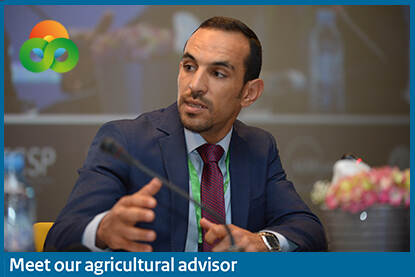
About 9 million hectares of Morocco are cultivated. Insufficient and irregular rainfall causes major differences in the country’s annual harvest. Self-sufficiency varies depending on the year from 30% to 75% for cereals. In recent years, the drought has been the main problem. Moustanjidi: “In horticulture and fruits production, water efficiency is pivotal. The Dutch are experts in water management and in developing water efficient cultivation systems under controlled climate in greenhouses. It is a major aspect of sustainability where the Netherlands can contribute to a more robust agriculture in Morocco.”
Moustanjidi has been working as an agricultural advisor at the Netherlands embassy in Rabat for 11 years. He supports agricultural counsellor Niek Schelling, together with policy officer Yassine Errachti.
How did you get the job as an agricultural advisor?
“A recruiting company contacted me and sent me a vacancy for agricultural advisor. At the time, there was no agricultural office in Morocco. It was managed from Tunis for, Morocco, Algeria, Tunisia and Libya. But within a year, the Maghreb office for agriculture was transferred to Rabat, and since 2018 it has been covering both Morocco and Senegal. What attracted me was the opportunity to build and create a Dutch-Moroccan cooperation network and the fact that we focused on long-term projects from the start. At the moment, we are one of the most active offices in our region.”
'Horticulture is booming in Morocco. The Netherlands is famous for its state of art horticulture technology'
What experience did you bring?
“I studied agroeconomics and agribusiness at the Agronomic and Veterinary Institute Hassan II in Rabat. I was always interested in life and natural sciences. My first job was in the semi-public sector as an agroeconomist in Rabat, in charge of economic studies and research related to the grains value chain. After that, I joined an USAID funded program, implemented to develop the integration of agriculture and agribusiness and worked on the development of market opportunities for new export-oriented crops introduced by the program. Before joining the Netherlands Embassy, I worked for a state owned phosphate miner and fertilisers producer. There I was responsible for a program to develop the rational use of fertilizers in the local market.
Beside this I am a lecturer at an Institute for Environment and Sustainable Development, where I share my experience related to sustainable development with the young generation. So, I had much experience in both the public and semi-public sector and education as well.”
Lees verder onder foto
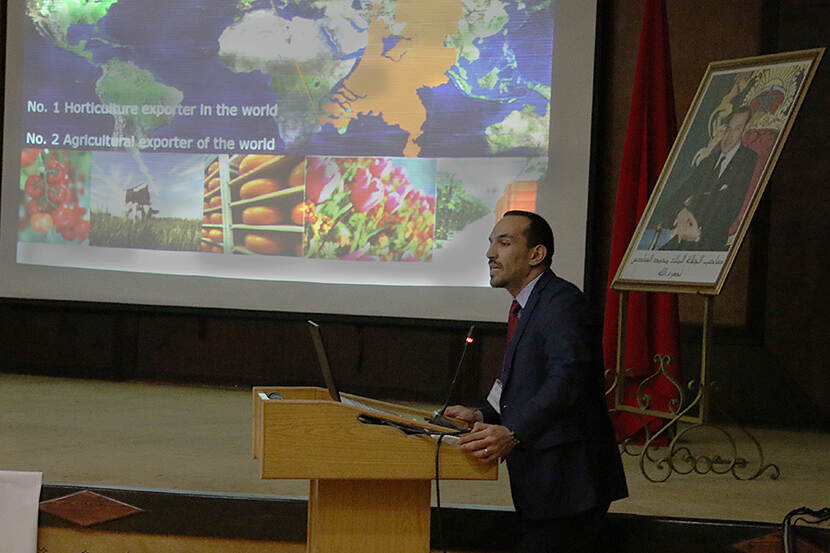
What did 11 years of working as an agricultural advisor bring you?
“What I like most is that we run a lot of relevant and significant long-term projects, both with the private and public sector. I like the wide range: research, knowledge, improving sustainability and trade. Morocco is a key exporter of fruits and vegetables to the EU. We also import a lot of agricultural inputs. This historic trade relation provides a base to strengthen the relationship between the Netherlands and Morocco. Dutch companies invest a lot in fruits and vegetables production and export, and we have many cooperation activities with different actors in the agricultural sector.”
Can you give an example of a fruitful collaboration between the Netherlands and Morocco?
“Horticulture is booming in Morocco. The Netherlands is famous for its state of art horticulture technology. A few years ago, we got the idea of creating a platform to improve the transfer of technology and exchange of knowledge between the Dutch and Moroccan research institutions. This platform called the Center of Excellence in Horticulture, is built around a demonstration and research greenhouse, designed by Wageningen University & Research. The latter also developed a research and education programme together with a Moroccan university. This long-term collaboration provides co-supervision of PhD Students and collaborative R&D projects geared towards the needs of the Moroccan producers.
Dutch experts help to tackle salinization
A Dutch delegation visited Morocco at the end of May this year to discuss the opportunities for cooperation in the field of saline agriculture. Due to climate change and unadapted agricultural practices, salinity is becoming a challenge in many areas and leads to lower agricultural production. Through the cooperation initiated by our office, a consortium of Dutch companies will work with local partners to introduce solutions for the mitigation and adaption of saline circumstances. Dutch experts visited potential locations for pilot projects, like the oasis area in the South-East of Morocco and discussed the details of the project activities with their Moroccan counterpart.
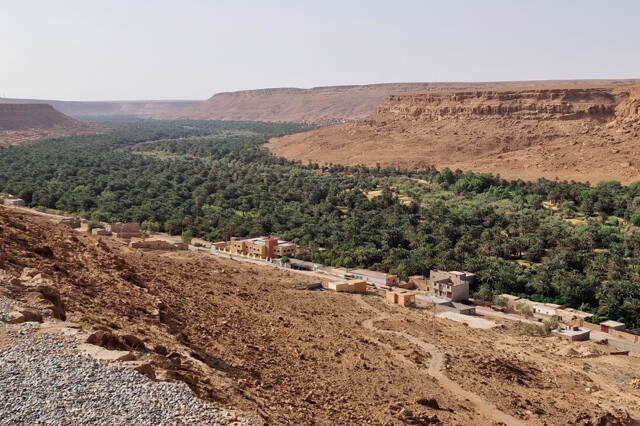
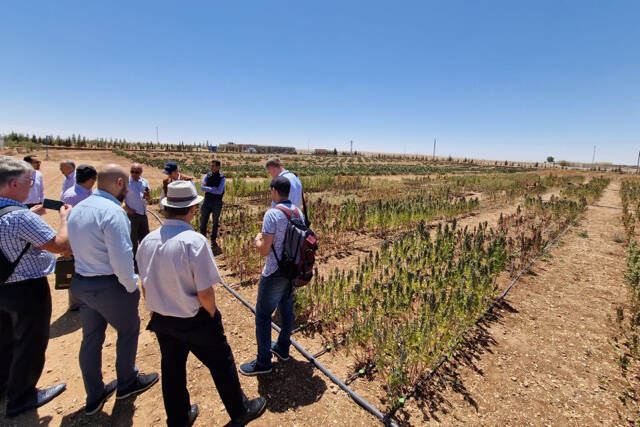
Where do these projects focus on?
“On issues like water use efficiency, climate control, digitalisation, integrated pest management, post-harvest and sustainability. Now the private sector has also shown its interest to join this initiative and a consortium of companies from the Netherlands and Morocco are being formed to invest in the Centre of Excellence in Horticulture in Agadir. It is an example of a win-win project where everyone benefits, based on a long-term cooperation”.
The Moroccan long-term policy for 2020-2030, called Green Generation, focuses on improvement, expansion and sustainability of agriculture. How can the Netherlands contribute?
“The Netherlands can and do already play a key role in achieving these goals. All the long-term cooperation’s and projects have this focus. Luckily both the Moroccan and Dutch agricultural strategies are pursuing the same goal of improving the sustainability of the agricultural sector.
Dutch expertise, technology and investments can contribute to improving mechanisation, post-harvest management, processing, and marketing. In dairy there are opportunities in improving knowledge and thereby increasing productivity and animal welfare. The Netherlands experience in agroecology and circular agriculture is also interesting to accompany the ecological transition of Moroccan agriculture.
Our office has also started a cooperation with the AAA initiative (African Agriculture Adaptation), launched by Morocco during the COP22 in Marrakech to promote climate smart agriculture in the African countries. This trilateral cooperation gives another dimension to our work and puts the Netherlands on the map.”
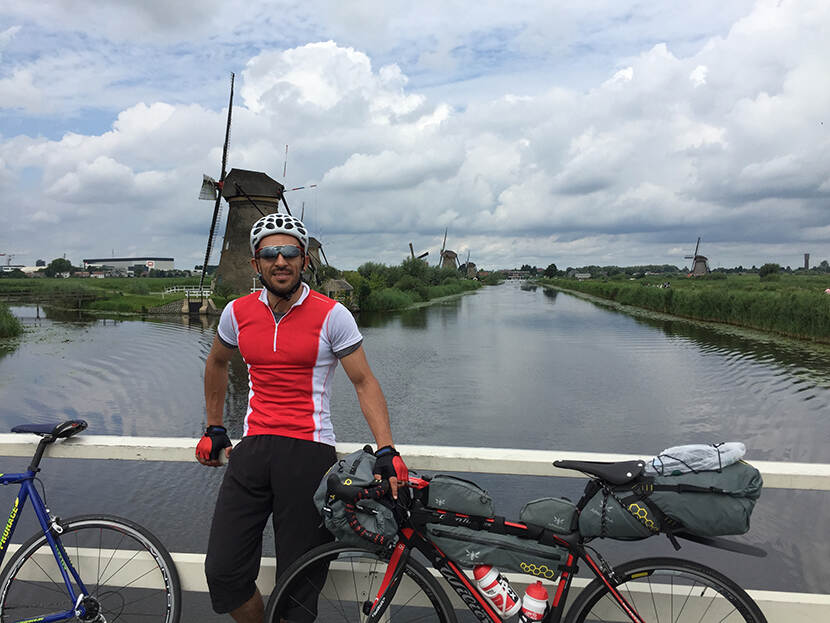
Did COVID-19 have a significant impact on the agri-food sector in Morocco?
“The Moroccan agri-food sector turned out to be one of most resilient to COVID-19. In fact, the export of agricultural products increased by 6% in 2020/2021. We adapted very quickly to the pandemic. In fact, drought had a much bigger impact than the pandemic.”
The war in Ukraine has been going on for more than one hundred days now. In what way does this conflict affect Morocco?
“Like other African countries, Morocco largely depends on Ukraine (26% of the import) and Russia for grain imports. Due to this war, the availability of grain is a major problem and prices are sky rocketing. Other commodities and inputs like fertilisers and animal feed show unprecedented inflation. Thanks to firm intervention by the government, food prices are still under control.”
You were born and raised in Marrakech and live in Rabat since you were a student. How is life in Rabat?
“We have a saying in Morocco that only a lucky man can be born in Marrakech, but Rabat - called 'the capital of lights' in Morocco - is also a genuinely nice city: green, clean, historical. It is great to live here with my wife and three daughters.”
In 2016, you made a 3000-kilometre bike tour from Amsterdam to Marrakech. Why?
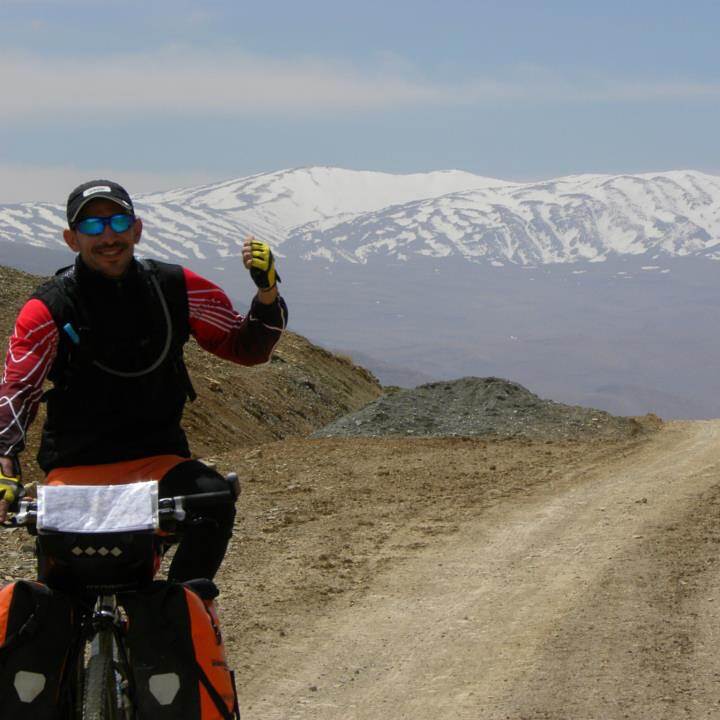
“It was a tour to raise money for the Kidney Association. My father died of kidney issues, so that is why I was involved. March 10 in 2016 was world kidney day for children, that's how I got the idea. It was a one-time event. But bike packing is still my passion and almost my way of life during my holidays. Recently I did an intensive four-day bike packing trip through the mountains with a friend. My children are still far too young for a trip like that.”
Contact
Phone: +212 537 219 613
E-mail: rab-lnv@minbuza.nl
Twitter: @NLagriMaghreb